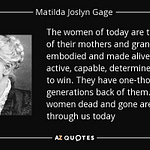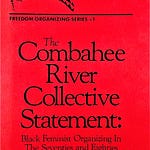Welcome back, Trekkies, historians, and lovers of media analysis! After a short delay (turns out getting a starship up to warp speed takes time), Warp Speed Woke: Lecture 5 is here, and this time, we’re taking a hard look at Star Trek: Enterprise, the series that marked the franchise’s first real foray into the post-9/11 world.
Enterprise is a bit of an anomaly in Star Trek history. It was the first series since The Original Series to be canceled before reaching seven seasons, the first true prequel in the franchise, and—whether the showrunners admit it or not—the first Star Trek series to fully embrace post-9/11 American anxieties.
The Enterprise Experiment: A Prequel Without a Purpose?
Brannon Braga and Rick Berman, the Trek overlords of the ‘90s, decided that Enterprise needed a new hook. Instead of boldly going forward in the Star Trek timeline, they looked back, setting the series in the 22nd century, before the creation of the Federation. Instead of a shiny, futuristic starship, the NX-01 was deliberately designed to resemble a cramped, militaristic submarine. Instead of the philosophical debates and utopian optimism of the Next Generation era, Enterprise had something far more familiar: a rugged, all-American crew learning to navigate a dangerous and unpredictable galaxy.
Sounds a little… reactionary for Star Trek, doesn’t it?
From Roddenberry’s Vision to America’s War on Terror
For two seasons, Enterprise was largely an episodic adventure show. Then, in season three, everything changed. Enterprise got its war.
🚀 Earth was attacked without warning by a mysterious alien race, the Xindi, killing millions of people.
🚀 Captain Archer and his crew were sent to hunt down the perpetrators.
🚀 Along the way, they had to deal with suicide bombers, extremist religious fanatics, and moral compromises in the name of security.
Sound familiar?
While Braga denies that Enterprise was meant to parallel the War on Terror, the season’s storylines suggest otherwise. Writers and actors alike have pointed to direct allegories between the Xindi conflict and America’s post-9/11 foreign policy. Captain Archer, a man who started as a hopeful explorer, became a hardened warrior—torturing prisoners for intel, launching preemptive strikes, and crossing ethical and moral lines for the “greater good.”
But Was It Star Trek?
This is where the debate begins. Unlike The Original Series, The Next Generation, and even Deep Space Nine, which critiqued American foreign policy, Enterprise mirrored it. Instead of challenging American exceptionalism, Enterprise indulged in it.
In the era of shows like 24, where terrorism and national security were dominant pop culture narratives, Enterprise felt less like a progressive sci-fi critique and more like military propaganda set in space. The Roddenberry philosophy—that humanity’s future should be about enlightenment, diplomacy, and overcoming our worst instincts—was buried beneath a show that, by its third season, embraced jingoism, fear, and war.
So, What’s the Verdict?
Did Enterprise fail as a Star Trek series? Not necessarily. It had its moments—episodes that questioned war, explored paranoia, and gave us glimpses of the Star Trek ideal. But ultimately, it marked the franchise’s full transition from a series that critiqued American culture to one that simply reflected it.
What do you think? Was Enterprise a bold reimagining of Star Trek for a new era, or did it lose the soul of the franchise? Let’s discuss in the comments!
💡 Stay tuned for more lectures! And if you love deep dives into sci-fi, history, and snark, make sure you’re subscribed to Bitchy History for more!










